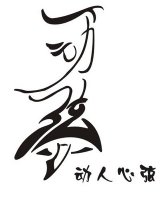 History
HistoryIn the early 19th century, the Chinese in Indonesia can be identified into two groups. One group was newly immigrated Chinese known as “totoks” (full-blooded Chinese, usually foreign born). This group spoke Chinese and was culturally oriented towards China. The other group is known as “peranakan Tionghoa” (descendants of Chinese) who has been in Indonesia over the centuries, speaks Indonesian or local Indonesian dialect, with a culture that is neither wholly Chinese nor wholly Indonesian.
Unlike the more strictly male-dominated “totok” Chinese, “peranakan Tionghoa” families recognized descent based on both female and male lines. The “peranakan Tionghoa” families were more likely to have converted to Christianity and to have assimilated in other ways to the norms of Indonesian culture. Some even converted to Islam. The latter group is also categorized as “WNI Keturunan Tionghoa” i.e. Warga Negara Indonesia (Indonesia Citizen) of Chinese descend. This group has since fight for equal rights as Indonesian Citizens.
In the early 1990’s, “totoks” considered themselves as keepers of Chinese cultural ideals and maintained their traditions through household shrines, reverence for ancestors, and private language instruction in Chinese schools. Highly oriented toward success, they saw themselves as more dedicated to hard work, individual social mobility through the acquisition of wealth, and self-reliance than the peranakan. Whereas peranakan were more likely to have settled on Java, “totoks” were better represented in the other islands.
LanguageThe root of most Indonesian Chinese word is Hok-Kien (Fu Chien in Mandarin). These words are often used in daily conversation, some has been adopted in the new Indonesian language (since 1970’s).
Surnames
The Indonesian Chinese family names are uniquely Indonesian Chinese. These Indonesian Chinese family names were probably created by the Dutch immigration office during the Dutch colonial time. The scenario is that the overseas Chinese immigrated to Indonesia, a Dutch colony, and were verbally asked what his or her family name was. Most likely the Dutch officers did not read Chinese characters, and therefore wrote the immigrant family name in alphabets, closest to its sound. Most of the overseas Chinese used the Chinese dialect (i.e. not Mandarin) in pronouncing their family name. As an example, the sound “OO – ee” (Huang in Mandarin) had been translated to Oey or Oei. Note that “Oe” is equivalent to “U” in the old Dutch language. In this case two Indonesian Chinese family names were created.
Some Indonesian Chinese Family names:
Ang, Bhe, Feng, Go, Goei, Gouw, Ko, Kho, Khouw, Lauw,Liang, Liauw, Lie, Liem, Lim, Lo, Nio, Oei, Oey, Ong, Ouw, Pang, Pouw, Siauw, Sie, Siem, Sim, Souw, Tan, Teng, Thia, Thio, Touw
Counting
1 = It, 2= Jie, 3 = San, 4 = Sie, 5 = Go’, 6 = Lak, 7 = Chit, 8 = Pe, 9 = Qiu, 10 = Chup, 11= Chup-it, 12 = Chup-jie, 13 = Chup-sah
20 = Jie-chup, 30 = Sa-chup
100 = Che-pek, 200 = No-pek, 300 = Sa-pek
1.000 = Che-cheng, 2.000 = No-cheng, 3.000 = Sah-cheng
10.000 = Che-bhan, 20.000 = No-bhan, 30.000 = Sah-bhan
100.000 = Che-pek-cheng, 200.000 = No-pek-cheng
General Addressing and relatives
Nchek = Uncle
Nchim = Aunt
Ngkoh = Older brother
Nchi = Older sister
Nsoh = Wife of an acquaintance
Mpe’ = Uncle (Father’s older brother)
Nchek = Uncle (Father’s younger brother)
Nchim = Aunt (Wife of father’s younger brother)
Ngkim = Aunt ( Wife of father’s older brother)
Ngkoh = Older brother
Nchi = Older sister
Chi-hoo = Older brother in-law
Mey-hoo = Younger sister-in-law
Toa-pe’ = Uncle (Father’s eldest brother)
Toa-em = Aunt (Wife of Father’s eldest brother)
Toa-koh = Eldest brother
Toa-chi = Eldest sister
Ji-pe’ = Uncle (Father’s 2nd older brother)
Other common expressions
Be-po’ = Not good
Chukong = Boss, rich boss
Go-su = Dangerous
Kam-sia = Thank you
Kiong Hie = Greetings
Peng-an = Grace
Put-houw = Not obedient, not good
Put-tiong = Not loyal

No comments:
Post a Comment